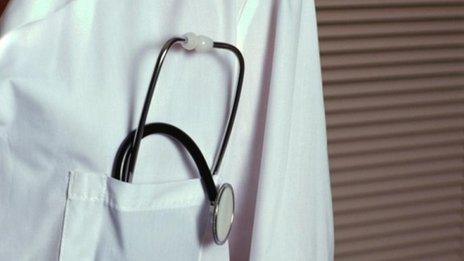Would-be GPs could get student fees reimbursed in Wales
- Published
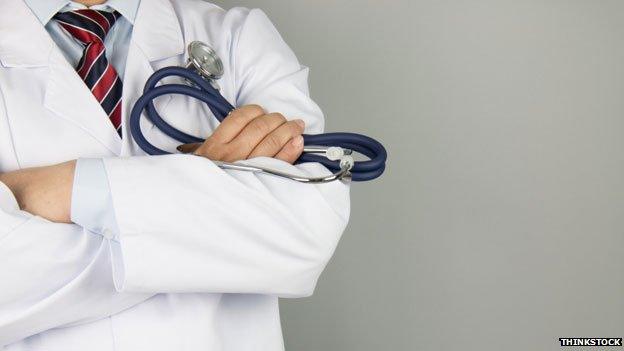
Nearly a quarter of GPs are set to retire over the next five years
The fees of medical students who commit to becoming GPs could be paid in a bid to avert what doctors are calling an impending crisis.
The idea is in a plan to boost numbers of GPs and community nurses in Wales.
Other measures unveiled by the health minister include offering part-time work to doctors thinking of retiring.
Mark Drakeford, who announced an extra £4.5m towards recruitment and training, also said he wanted to "make the most" of the skills of current staff.
Health Minister Mark Drakeford says NHS Wales needs to be able to offer workers a career
The Royal College of General Practitioners (RCGP) in Wales has already pointed to a "desperate workplace crisis", with nearly a quarter of GPs set to retire over the next five years and a slump in medical graduates wanting to replace them.
The strategy also looks at new ways of working between GPs, pharmacists, dentists, optometrists, therapists, nurses and other healthcare workers.
It wants improved training, more robust planning and a greater sharing of information, so patients can be given more effective treatment outside hospital.
South Wales GP Dr Richard Lewis, Welsh Secretary of the British Medical Association, has also been appointed as Wales' first professional lead for primary care.
His responsibilities include providing leadership to healthcare staff in the community and helping the Welsh government with its plan to provide more medical services closer to people's homes.

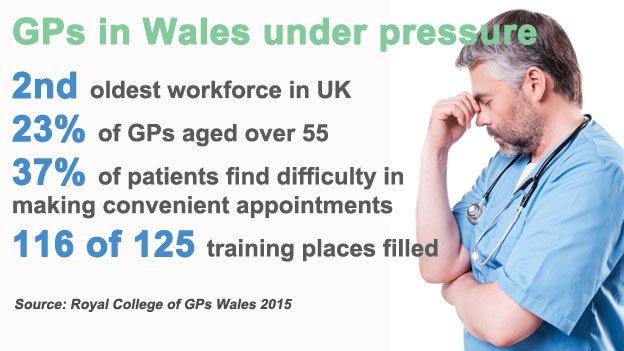

Proposals include:
Increasing places on return-to-nursing courses - building on the 73 who re-trained last year
Expand the GP retainer scheme, which offers flexible working to encourage doctors thinking of retiring to stay in work part-time
Reimburse medical school fees when a newly-qualified doctor commits to a career in general practice
A national GP recruitment campaign promoting the benefits of a career in Wales
Expand the range of care settings in which training can be carried out and build on "learning wards" in the community
Continue to develop the 64 primary care clusters beyond just a collection of GP clinic-based services to become "fully functioning"
Change the law to make it easier for GPs registered to work in England to work in Wales for short periods of time
Analyse existing and future Welsh language population needs and the support needed by the workforce to meet those needs

Dr Melfyn Edwards, Kevin Edwards and Dr David Church give their views on the shortages at their surgeries
BBC Wales health correspondent Owain Clarke took a trip around mid and north Wales to look at three surgeries.
Criccieth Medical Centre, Gwynedd
There are 4,000 registered patients but shortages of GPs locally coupled with an aging population means demand is increasing all the time. Some patients can wait up to a month for an appointment.
Dr Melfyn Edwards said: "There's been a failure to recruit for various reasons. The situation is quite bleak locally.
"For GPs it's degrading to morale, it's very difficult to try to sustain a happy smiling face and provide good standards of service when you're under a heck of a lot of pressure daily."
Meddyg Care, Porthmadog, Gwynedd
After the retirement of two local GPs, Betsi Cadwaladr University Health Board had to take over the running of GP surgeries in Porthmadog for 18 months using temporary staff.
The tender to run the town's two NHS surgeries was subsequently won by Meddyg Care company, a business run by two GPs and a managing partner.
Kevin Edwards, practice manager, said: "We've got to be encouraging medical students to come to general practices and spending more time than they do presently".
Machynlleth Medical Centre, Powys
The Medical Centre in Machynlleth previously had four GP partners, now there are only two. After failing to recruit extra GP partners, Powys Local Health Board will take over the running of the surgery later this summer.
Dr David Church said: "There is a shortage across Britain. For a small surgery like this, you notice more of a difference.
"The health board will be taking over the direct management at the start of August and we hope that will allow us to concentrate on the clinical route while still trying to recruit doctors."

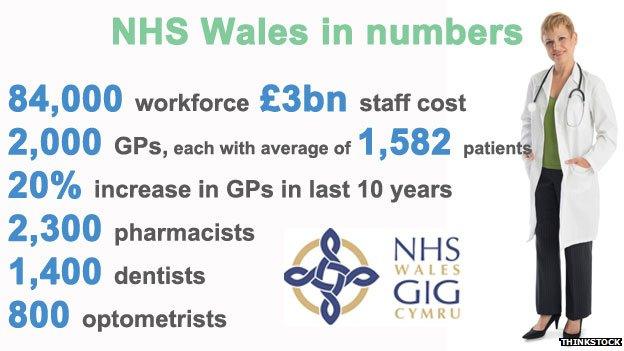

Mr Drakeford said: "Our goal is to meet the rising demand for healthcare by making the most of the skills our dedicated primary care workforce already have and supporting them in their continued desire to innovate and improve the services they provide every day."
Meanwhile, Dr Richard Lewis, who has been Welsh secretary of doctors' organisation, the British Medical Association, has been appointed as Wales' first national professional lead for primary care.
The new role will help ministers deliver the new strategy.
"He has the knowledge, experience and understanding of the strengths and challenges of our health service in Wales," said Mr Drakeford..
- Published12 March 2015
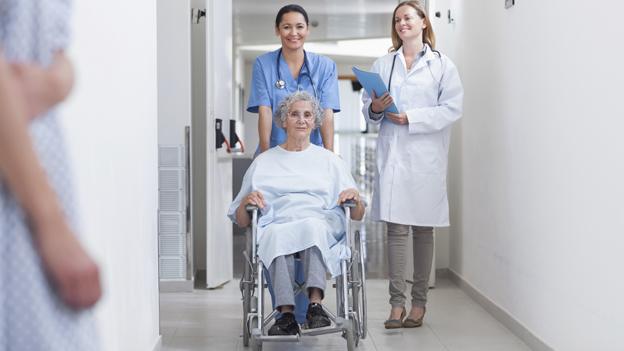
- Published24 January 2015

- Published12 March 2015
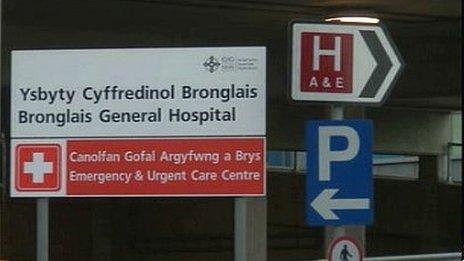
- Published2 March 2015

- Published1 August 2013
